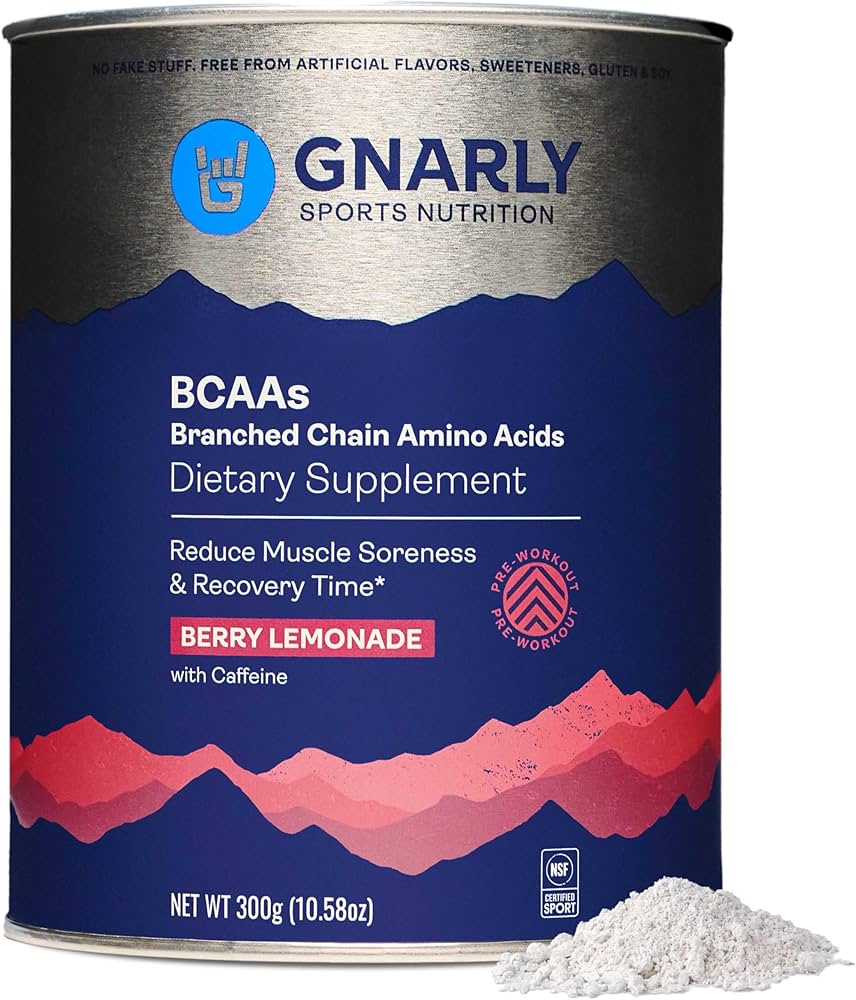Top 5 Uses of BCAA for Effective Muscle Recovery in 2025
In the world of fitness and nutrition, BCAA (Branched-Chain Amino Acids) has emerged as a significant player, especially for athletes and fitness enthusiasts aiming for optimal muscle recovery. BCAAs, which include three essential amino acids: leucine, isoleucine, and valine, play a crucial role in muscle repair and energy supply during workouts. As we move into 2025, understanding the effective uses of BCAAs can dramatically influence athletic performance and recovery strategies.
Additionally, BCAAs can assist in reducing muscle soreness post-exercise and may prevent muscle loss during calorie deficits. This article breaks down the top five uses of BCAAs for effective muscle recovery, highlighting their importance in sports nutrition and fitness training. We will explore the science behind BCAAs, their benefits, and how to incorporate them effectively into your routine, ensuring you reach your fitness goals.

Understanding BCAAs and Their Importance
Building on the fundamentals of sports nutrition, it’s essential to grasp the critical role BCAAs play in muscle recovery. Unlike other amino acids, BCAAs are metabolized in the muscle rather than the liver, making them directly available for energy during workouts.
What Are BCAAs?
BCAAs consist of three essential amino acids: leucine, isoleucine, and valine. These acids contribute significantly to protein synthesis, which is vital for muscle repair and growth. Leucine, particularly, is known for its role in activating the mTOR pathway, which is critical for muscle recovery and anabolic processes.
Benefits of BCAAs in Muscle Recovery
The benefits of BCAAs extend beyond simple muscle growth. They can reduce muscle soreness following intense workouts and may enhance the recovery process by aiding in quicker repair of muscle tissue. Furthermore, BCAAs help decrease exercise-induced fatigue, allowing athletes to maintain higher performance levels during training.
The Science Behind BCAA Supplementation
Research indicates that supplementing with BCAAs can help improve training outcomes. A study conducted by experts showed that individuals supplementing with BCAAs experienced reduced markers of muscle damage, such as creatine kinase, compared to those taking a placebo. This supports the theory that BCAAs can enhance recovery times and performance.
Recommended Dosage and Timing
For optimal results, the recommended dosage of BCAAs varies based on individual needs and workout intensity. A typical serving of 5-10 grams before or during workouts may significantly advance recovery and performance. Post-workout supplementation can further aid in muscle repair.
Connecting to Effective Nutrition Strategies
Integrating BCAAs into a comprehensive nutrition plan is essential for athletes and fitness enthusiasts. To maximize their impact, consider pairing BCAA supplementation with proper hydration and a balanced diet rich in protein and carbohydrates, which support recovery and muscle energy.

Top 5 Applications of BCAA for Muscle Recovery
Now that we understand what BCAAs are and their importance in sports nutrition, let’s delve into the top five applications of BCAAs for muscle recovery in 2025.
1. Enhanced Muscle Repair
The primary application of BCAAs revolves around their ability to enhance muscle repair following strenuous activities. Their rapid absorption into muscle tissue supports the repair and rebuilding of damaged muscle fibers, critical for athletes aiming to reduce recovery times between sessions.
2. Reducing Muscle Soreness
Delayed Onset Muscle Soreness (DOMS) can hinder subsequent workouts. BCAAs are effective in reducing the severity and duration of DOMS, allowing athletes to maintain higher training frequencies without prolonged discomfort.
3. Prevention of Muscle Loss
A common challenge in fitness, especially during calorie deficits, is muscle loss. BCAAs help preserve lean muscle mass, making them invaluable for those looking to lose fat while maintaining muscle during weight loss phases or cutting diets.
4. Increased Energy Levels
During extended workouts or fatigue-inducing training, BCAAs can serve as an energy source. They can help maintain blood glucose levels and delay fatigue, enhancing overall performance during resistance training or endurance workouts.
5. Support for Enhanced Performance
Lastly, using BCAAs strategically in training regimens can lead to noticeable performance enhancements. Increased strength, stamina, and better recovery contribute to improved workout quality and goal attainment.
Conclusion: Maximizing Your Recovery with BCAA
In conclusion, the inclusion of BCAA supplements can significantly support effective muscle recovery, making them an indispensable part of any athlete’s nutritional strategy. Whether you aim to strengthen your muscles or improve recovery times, understanding the uses of BCAA can propel you toward your fitness objectives in 2025. Remember to consider the overall context of your nutrition and training, as the symbiotic relationship between proper supplementation, a balanced diet, and quality training will ultimately yield the best results.
FAQs about BCAA and Muscle Recovery
What are BCAAs and how do they work?
BCAAs are branched-chain amino acids that include leucine, isoleucine, and valine. These amino acids directly support muscle repair and recovery by aiding in protein synthesis and providing energy during workouts, making them essential for maintaining performance.
How much BCAA should I take?
The standard recommended dosage of BCAA is between 5 to 10 grams, taken before and/or after workouts. Individual nutritional needs may vary, so it’s best to tailor your dosage to your specific training intensity and goals.
Can BCAAs help with weight loss?
Yes, BCAAs can support weight loss by preserving lean muscle mass while in a calorie deficit. This helps improve body composition and can prevent the pitfalls associated with muscle loss during dieting.
When is the best time to take BCAAs?
Consuming BCAAs before or during a workout can provide immediate benefits during training. Post-workout supplementation can further aid in muscle recovery, so timing can depend on individual needs and training schedules.
Are there any side effects of BCAAs?
When taken in appropriate doses, BCAAs are generally safe for most individuals. However, excessive intake may lead to digestive issues or imbalances in amino acid levels. It’s essential to adhere to recommended dosages and consult a healthcare professional if unsure.
